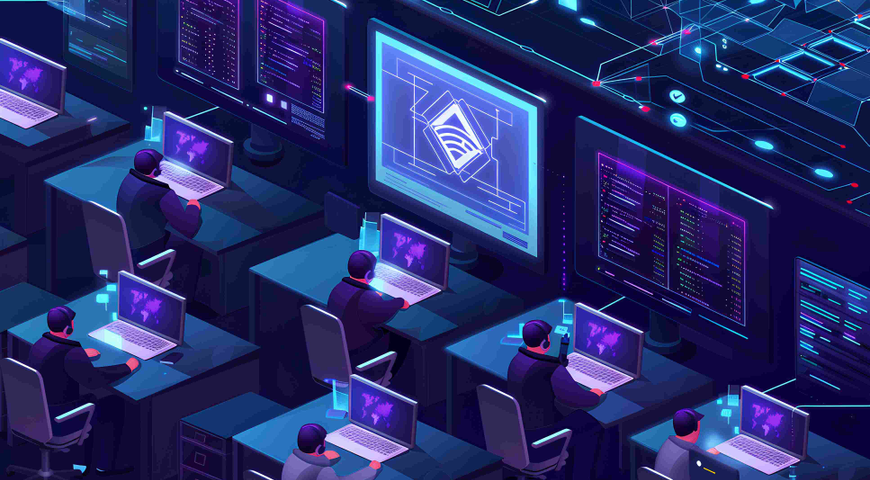
Full of cyberattacks, concerns surrounding mobile phones, and questions about data protection, this past week was rife with tech news. What did you miss?
Ransomware attack affects another hospital
Recent ransomware attacks have caused a string of hospitals to cancel daily operations in the UK.
The attack hit the Northern Lincolnshire and Goole NHS Foundation trust, and spread along to all connected hospitals via a shared IT system.
"A virus infected our electronic systems [on Sunday] and we have taken the decision, following expert advice, to shut down the majority of our systems so we can isolate and destroy it," said Deputy Chief Executive Dr. Karen Dunderdale as reported by BBC.
The attack shut down routine operation, causing hospital officials to cancel all outpatient appointments, and divert major traumas and women in labor to neighboring hospitals.
Wednesday’s appointments in audiology physiological measurement, antenatal community and therapy, chemotherapy, pediatrics, and gynecology continued as planned.
No specific information about the attack has been released, but it only further validates the necessity for increased cybersecurity across all sectors.
RELATED: There Are Many Ways to Repel Ransomware, Only One Way to Defeat It
Is the future of currency digital?
The future is now—overseas banks looking to blockchain technology to create digital currency.
Countries seeking out this new way of minting currency include the UK, Russia, Canada, Australia and China—just to name a few. And while this research is still in its beginning stages, the push towards digital currency is intensifying.
“The technology is moving quickly. A lot of people think central banks are very risk averse, but we are thinking, ‘Are there opportunities to grasp innovation ourselves?’” said Chief Cashier of the Bank of England Victoria Cleland, Financial Times reported.
To ensure the safety and security of digital currency, these bankers have turned to blockchain, which ensures that each transaction made with this digital currency would be linked and recorded.
There is controversy, however over the anonymity of it all—the lack of a centralized, controlled network.
Despite the questions that will be answered along the way, as well as the legislation that would have to be put in place, it’s obvious that digital currency will have its place in our future.
Is WhatsApp violating data protection Laws?
WhatsApp is once again under fire by an EU data protection group due to alleged improper user information sharing.
The group, The Article 29 Working Party, is seeking clarification by WhatsApp that the information shared between itself and Facebook complies with EU data protection laws, Threatpost reported. The group itself comprises data protection agencies across the whole of the European Union.
WhatsApp has been bombarded with questions about its information sharing ever since it changed its policy in August. The company said that it would begin sharing user information with its parent company, Facebook.
But what information will they be sharing? That’s the crux of the confusion and worry.
The change has caused multiple groups to reach out and demand answers. Some of these groups include The Electronic Privacy Information Center, The Center for Digital Democracy, and even the UK’s Information Commissioner’s Office.
Amidst the controversy, WhatsApp released a statement: “We’re working with data protection authorities to address their questions. We’ve had constructive conversations, including before our update, and we remain committed to respecting applicable law,” TechCrunch reported.
Are third-party apps infecting our phones?
Malware infections in mobile phones have spiked recently, and the culprit seems to be third-party apps.
Recent studies show that mobile malware infections have risen 96% in the first six months of 2016, and many of these infections are attributed to third-party app stores. This is due to wide variations in how extensively these services vet the apps allowed on their platforms.
This doesn’t mean that all third-party app stores are unsafe; in fact, these alternative platforms allow for better competition across the board. But they aren’t nearly as closely regulated and monitored.
A recent example of this is the Pokemon Go craze that took the world by storm.
In no time, cybercriminals were taking advantage of the hype, creating apps in third-party app stores that hijacked users’ social media accounts and personal information.
The Federal Trade Commission and Federal Communications Commission have since opened an investigation into what should be done by carriers and smartphone manufacturers in order to keep our devices safe from future attacks, as reported by Huffington Post.
RELATED: The Easiest Way to Back Up iPhone and Android Devices
About Acronis
A Swiss company founded in Singapore in 2003, Acronis has 15 offices worldwide and employees in 50+ countries. Acronis Cyber Protect Cloud is available in 26 languages in 150 countries and is used by over 20,000 service providers to protect over 750,000 businesses.




